At CarMax Vehicle, we specialize in crafting high-quality car trailers tailored to meet diverse transportation needs. Understanding the intricate design specifications is paramount to ensuring durability, safety, and efficiency. This comprehensive guide delves into the essential aspects of car trailer design specifications, providing an in-depth analysis to help you make informed decisions.
Importance of Proper Design Specifications in Car Trailers
Design specifications form the backbone of any car trailer, influencing its functionality, longevity, and user satisfaction. Accurate specifications ensure that the trailer can handle the intended load, navigate various terrains, and comply with safety regulations. A well-designed trailer not only protects the transported vehicle but also enhances the overall towing experience.
Key Components of Car Trailer Design
Designing a robust car trailer involves meticulous attention to several critical components. Each element plays a vital role in the trailer’s performance and reliability.
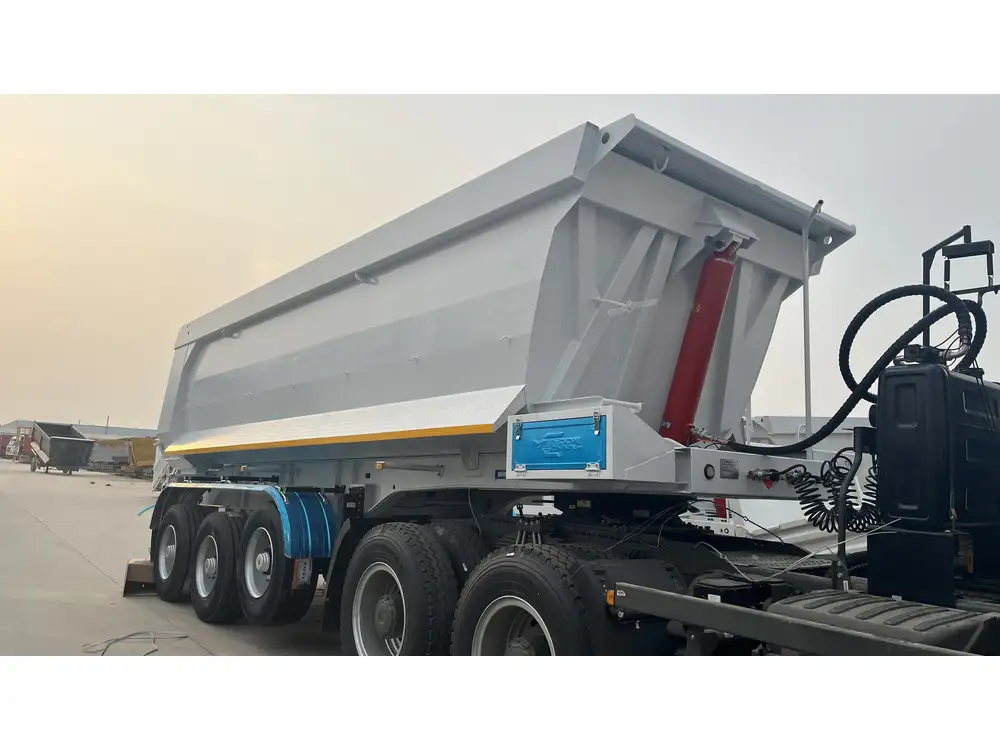
Frame Structure
The frame is the foundation of the trailer, determining its strength and stability. Typically constructed from high-grade steel or aluminum, the frame must withstand the stresses of towing and load-bearing.
- Material Selection: High-strength steel offers durability, while aluminum provides a lighter alternative without compromising strength.
- Structural Integrity: Reinforced joints and gussets enhance the frame’s ability to handle heavy loads and resist deformation.
Axles and Suspension
Axles and suspension systems are crucial for weight distribution and ride comfort. Properly designed axles ensure smooth towing and reduce wear on both the trailer and the towing vehicle.
- Axle Types: Single, tandem, and tridem axles cater to different load capacities and stability requirements.
- Suspension Systems: Leaf springs and torsion axles are common choices, each offering distinct advantages in terms of load support and ride quality.
Flooring Material and Construction
The flooring must support the weight of the vehicle while providing a stable surface during transit.
- Materials: Marine-grade plywood and steel decking are popular choices for their strength and resistance to moisture.
- Construction Techniques: Cross-bracing and reinforced supports prevent sagging and enhance load distribution.

Ramp Design and Loading Features
Efficient ramp design facilitates easy loading and unloading of vehicles.
- Ramp Types: Hinged ramps offer flexibility, while foldable ramps save space when not in use.
- Loading Mechanisms: Integrated winches and hydraulic lifts can assist in positioning heavy vehicles with minimal effort.
Lighting and Electrical Systems
Compliance with safety regulations necessitates a well-designed lighting and electrical system.
- Lighting Layout: Adequate lighting on the front, sides, and rear ensures visibility and safety during towing.
- Electrical Components: Reliable wiring and connectors support brake lights, turn signals, and other essential functions.
Safety Features and Compliance Standards
Adhering to safety standards is non-negotiable in trailer design.
- Braking Systems: Electric or surge brakes provide reliable stopping power.
- Reflectors and Mirrors: Enhance visibility and compliance with road safety laws.
- Secure Fastenings: Ensure that the transported vehicle remains firmly in place throughout the journey.
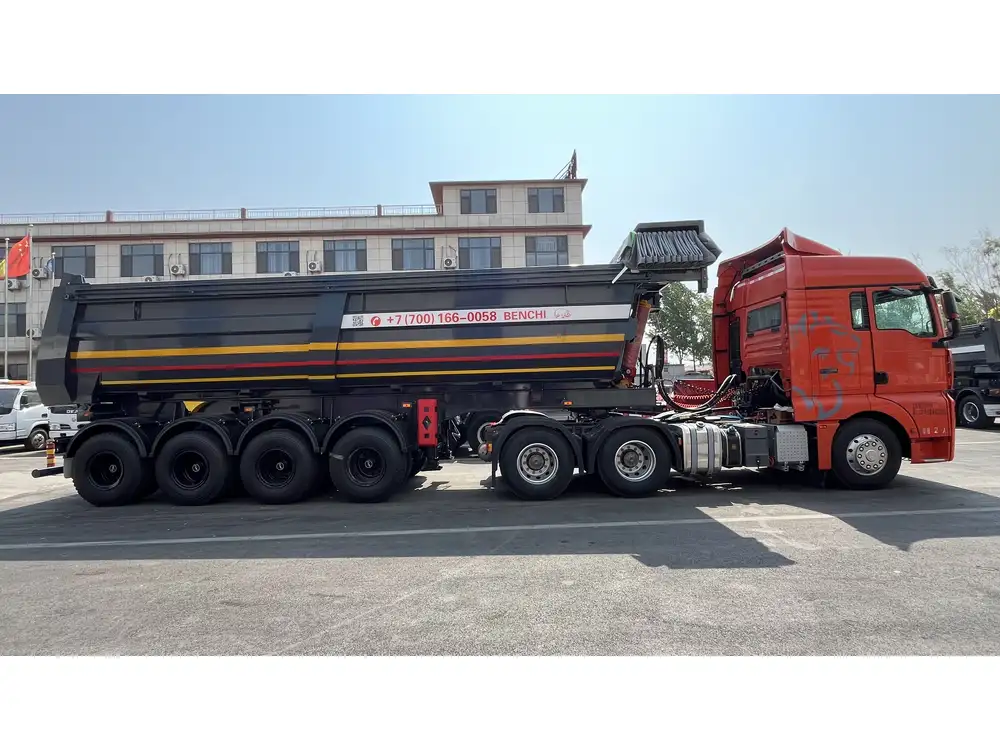
Design Process for Car Trailers
Creating a high-performance car trailer involves a systematic design process, encompassing several stages from initial concept to final production.
Initial Planning and Requirements Gathering
Understanding the client’s specific needs is the first step in the design process.
- Load Capacity: Determining the maximum weight the trailer must support.
- Usage Scenarios: Considering the types of terrains and conditions the trailer will encounter.
Material Selection and Durability Considerations
Choosing the right materials is critical for ensuring the trailer’s longevity and performance.
- Corrosion Resistance: Materials like galvanized steel and aluminum resist rust and degradation.
- Weight vs. Strength: Balancing the need for lightweight construction without sacrificing structural integrity.

Engineering and Structural Analysis
Advanced engineering techniques ensure that the trailer meets all design specifications.
- Finite Element Analysis (FEA): Simulates stress points and optimizes the frame design.
- Load Testing: Validates the trailer’s ability to handle specified loads under various conditions.
Prototyping and Testing
Building prototypes allows for real-world testing and refinements.
- Field Testing: Assessing performance in actual towing scenarios to identify potential issues.
- Feedback Integration: Incorporating user feedback to enhance design features and functionality.
Finalizing Design for Manufacturing
Ensuring that the design is optimized for efficient production is the final step.
- Manufacturing Processes: Streamlining fabrication techniques to reduce costs and production time.
- Quality Control: Implementing rigorous inspection protocols to maintain high standards.
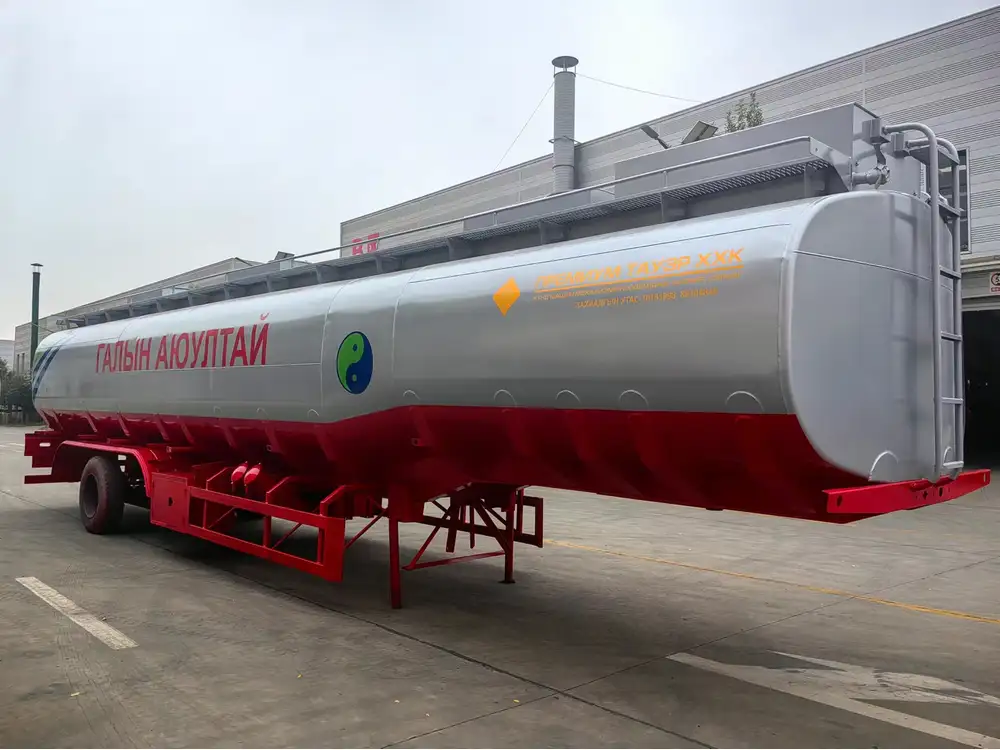
Customization Options in Car Trailer Design
Customization is key to meeting the unique needs of different users. At CarMax Vehicle, we offer a range of customization options to ensure that each trailer is perfectly suited to its intended purpose.
Size and Capacity Variations
Trailers come in various sizes and weight capacities to accommodate different vehicles and loads.
- Light-Duty Trailers: Suitable for passenger cars and light SUVs.
- Heavy-Duty Trailers: Designed for larger vehicles, including trucks and motorcycles.
Specialized Features for Different Vehicles
Different vehicles require specific features for safe and secure transportation.
- Sport Cars: Incorporating restraints and protective padding to prevent damage.
- Motorcycles: Including individual tie-down points and secure compartments.

Aesthetic Customizations
Aesthetic elements can enhance the trailer’s appearance and align with user preferences.
- Color Options: Offering a range of colors to match the towed vehicle or personal taste.
- Finish Types: Providing matte, gloss, or textured finishes for a customized look.
Innovations in Car Trailer Design
The automotive trailer industry is continuously evolving, with innovations that enhance functionality and user experience.
Lightweight Materials
Advancements in materials science have led to the use of lighter, yet strong materials.
- Aluminum Alloys: Reduce overall trailer weight, improving fuel efficiency and ease of towing.
- Composite Materials: Offer high strength-to-weight ratios and resistance to corrosion.

Aerodynamic Enhancements
Aerodynamic designs reduce drag, improving towing efficiency and stability.
- Streamlined Shapes: Minimize wind resistance and enhance fuel economy.
- Underbody Fairings: Smooth airflow beneath the trailer for reduced turbulence.
Smart Technology Integration
Incorporating smart technologies enhances safety and usability.
- GPS Tracking: Enables real-time monitoring of trailer location.
- Sensor Systems: Detect load shifts and alert users to potential issues.
Quality Assurance in Car Trailer Manufacturing
At CarMax Vehicle, quality assurance is integral to our manufacturing process. We adhere to stringent standards to ensure that each trailer meets our high-performance criteria.
- Material Inspection: Verifying the quality and consistency of all materials used.
- Component Testing: Ensuring that all parts, from axles to lighting systems, function correctly.
- Final Inspection: Conducting comprehensive evaluations before the trailer leaves our facility.

Comparison of Key Design Specifications
| Feature | CarMax Trailer | Competitor A | Competitor B |
|---|---|---|---|
| Frame Material | High-grade galvanized steel | Standard steel | Aluminum |
| Load Capacity | Up to 10,000 lbs | Up to 8,000 lbs | Up to 12,000 lbs |
| Axle Configuration | Tandem axles with advanced suspension | Single axle with basic suspension | Tandem axles with standard suspension |
| Flooring Material | Marine-grade plywood with reinforcement | Standard plywood | Steel decking |
| Ramp Mechanism | Hydraulic lift system | Manual foldable ramps | Hinged ramps |
| Lighting Systems | LED integrated with smart sensors | Halogen lighting | LED lighting |
| Customization Options | Extensive customization available | Limited color and feature options | Moderate customization options |
| Quality Assurance | Rigorous multi-stage testing | Basic quality checks | Standard testing protocols |
| Price Range | Competitive pricing for quality | Lower price, lower quality | Higher price, premium features |
Tips for Choosing the Right Car Trailer Design
Selecting the appropriate car trailer requires careful consideration of several factors to ensure it meets your specific needs.
Assess Your Load Requirements
Determine the type and weight of the vehicles you intend to transport. This assessment will guide decisions on load capacity, frame strength, and axle configuration.
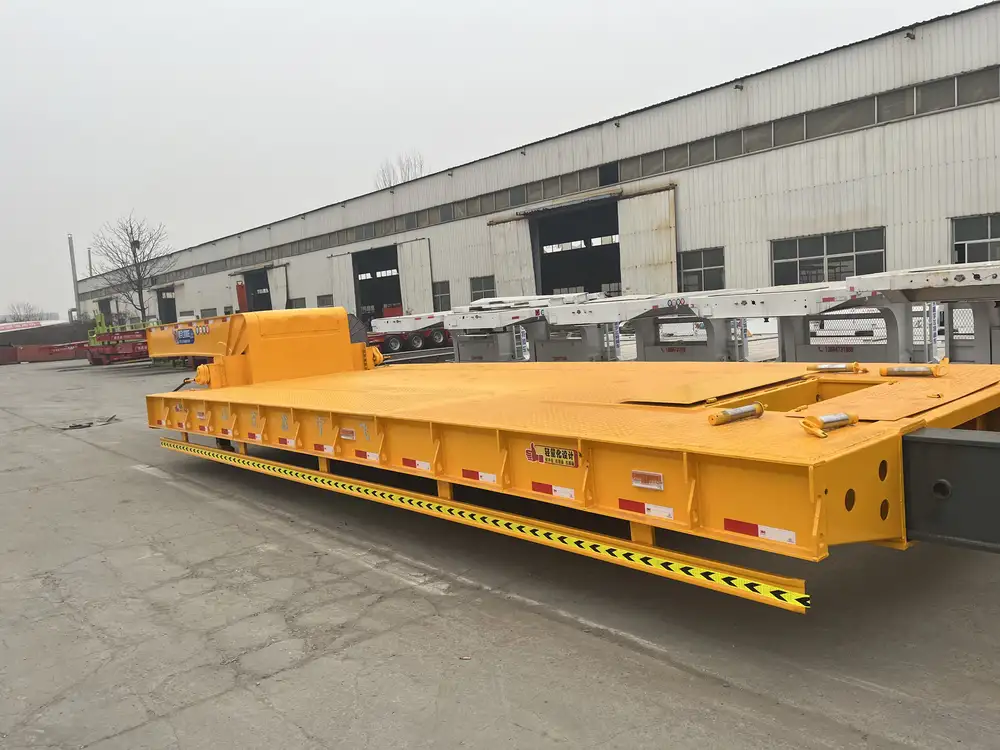
Consider the Terrain and Usage
Evaluate the terrains you will frequently encounter, whether urban highways, rugged off-road paths, or uneven rural roads. This consideration affects suspension choices and frame design.
Prioritize Safety Features
Ensure the trailer includes essential safety features such as reliable braking systems, proper lighting, and secure tie-down points to protect both the towed vehicle and other road users.
Evaluate Customization Needs
Identify any unique requirements you may have, such as specialized restraints for high-performance cars or additional storage compartments. Customizable options can enhance functionality and convenience.
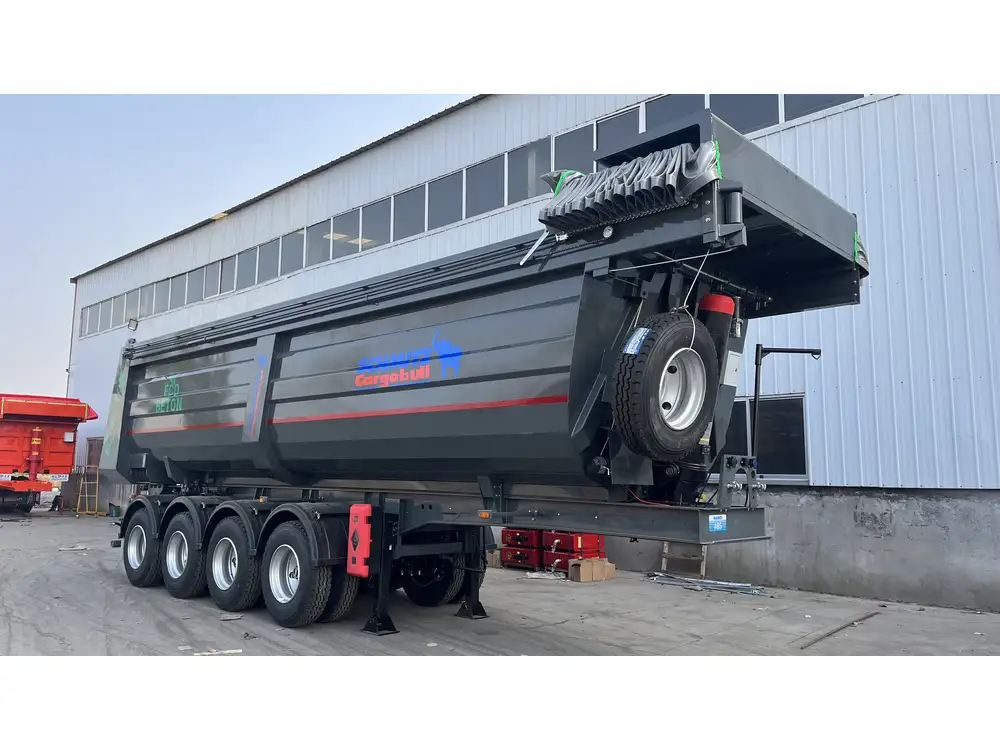
Review Quality and Durability
Invest in a trailer from a reputable manufacturer known for quality and durability. High-quality materials and robust construction will ensure the trailer serves you well for years to come.
Conclusion
At CarMax Vehicle, we understand that the design specifications of a car trailer are critical to its performance, safety, and longevity. By focusing on key components such as frame structure, axles, suspension, and safety features, we create trailers that meet the highest standards. Our commitment to customization and innovation ensures that each CarMax Trailer is tailored to your specific needs, providing you with a reliable and efficient transportation solution.
Whether you’re transporting a single vehicle or a fleet, understanding these design specifications empowers you to make informed decisions, ensuring that your trailer delivers exceptional performance every time.
Frequently Asked Questions

1. What factors should I consider when selecting a car trailer?
When selecting a car trailer, consider load capacity, frame material, axle configuration, suspension type, braking systems, and any customization options that meet your specific transportation needs. Additionally, evaluate the trailer’s suitability for the terrains you will encounter and ensure it complies with safety regulations.
2. How does the material of the trailer frame affect its performance?
The frame material significantly impacts the trailer’s durability, weight, and resistance to corrosion. High-grade galvanized steel offers exceptional strength and longevity, making it ideal for heavy-duty applications. Aluminum frames are lighter, improving fuel efficiency and ease of towing, while still providing adequate strength for lighter loads.
3. What safety features are essential in a car trailer?
Essential safety features in a car trailer include reliable braking systems (electric or surge brakes), adequate lighting and reflectors for visibility, secure tie-down points to prevent load shifting, and robust construction to withstand towing stresses. Additionally, features like GPS tracking and sensor systems can enhance safety and monitoring capabilities.

4. Can I customize a car trailer to fit multiple types of vehicles?
Yes, many manufacturers, including CarMax Trailer, offer customization options to accommodate various types of vehicles. Customizable features may include adjustable tie-down points, specialized restraints for different vehicle shapes, varying load capacities, and aesthetic modifications to match your preferences.
5. How do aerodynamic enhancements benefit a car trailer?
Aerodynamic enhancements reduce wind resistance, which improves fuel efficiency and towing stability. Streamlined shapes and underbody fairings help minimize drag, leading to smoother towing experiences and reduced wear on both the trailer and the towing vehicle. These improvements can also contribute to better handling and overall performance.



